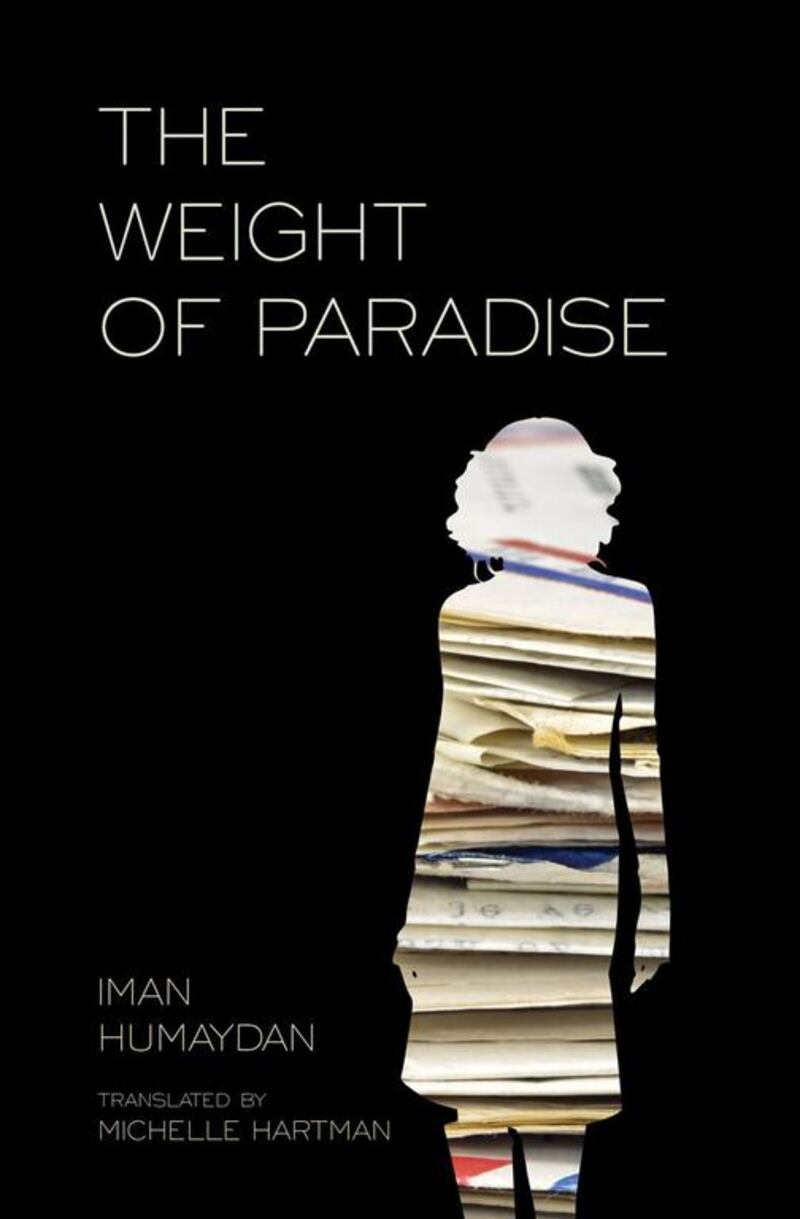Lost children haunt the literature of the Levant. These children – like Maroun in Rabee Jaber's Confessions and Khaldun/Dov in Ghassan Kanafani's Returning to Haifa – somehow slip or are stolen from their parents' embrace, to be raised by families of a different nationality or sect.
Just such a lost baby haunts Iman Humaydan's The Weight of Paradise, now translated by Michelle Hartman. In it, the infant Karim is separated from his mother in the opening chapter, when Noura is harassed then murdered. It's the summer of 1978, Noura is being hunted by her sister's former boyfriend.
Years before, in Syria, her sister took her own life while pregnant with his child. For years, Noura holds on to her sister’s suicide note, finally breaking the family’s silence and writing about her death in a London-based magazine. Noura refuses to retract her story, and her sister’s boyfriend kills her in turn.
After the opening murder, the novel moves between Noura’s life in the 1970s and that of a writer named Maya in the 1990s. Maya, a sort of amateur detective, discovers a suitcase filled with Noura’s papers and is hooked on the mystery.
There are many parallels between these two lone women’s lives. Both are writers, mothers, and obsessed by the singer Ismahan. The suitcase leads Maya to Sabah, Noura’s former cleaning lady. It was Sabah who was watching Karim when his mother was killed. It was she who “lost” him.
The portrait of Sabah is where the book flexes its muscles. She is simultaneously fearless and terrified, rebel and conformist. Born to a conservative family in south-eastern Turkey, Sabah took off on a motorbike with her boyfriend Ahmed when she was a young teenager, living a few glorious, free days before she was forced back home to her family. After this, she lets herself be married off to a cousin, also named Ahmed. She moved with him to Lebanon, and the second Ahmed disappears during the war.
Childless, the working-class Sabah continues to defy her family and runs a small business. And yet Sabah is also terrified when she’s left holding Noura’s baby. What will her husband think if he ever returns and finds her with an infant? How can she raise a child on her own? So she sells the child for adoption, through a broker, to a family in Europe.
Noura’s husband Kemal, imprisoned in Turkey for political activism, has been told that his son was killed with his wife. For 17 years, the boy stays lost. It is Maya who puts these pieces together, confronts Sabah, and attempts to track down the child, one of perhaps hundreds sold abroad during the war. But how to find him? People are dead, records forged. The novel’s ending, like that of many Lebanese civil war stories, leaves us with many unresolved questions.
Through its many twists and turns, the story focuses on the forced silences of a post-war, patriarchal society. The architectural erasures echo the silences of women’s lives.
Noura and her sister aren’t the only women who die to save a man’s “honour”. Maya makes eye contact with a woman at the beach and then comes across the woman’s murdered body. This stranger, too, was silenced by an “honour” killing.
The narrative’s greatest weakness is the old letters from Kemal, the only male point-of-view character. These letters neither advance the story nor flesh out Kemal. He remains the least-developed of the book’s main characters: the decent man.
The novel ends as Kemal hears what Maya has learned. This provides a flash of hope in a novel that gives an otherwise bleak look at how power and patriarchy keep us silent, erasing the past, limiting the future.
M Lynx Qualey is a freelance writer based in Cairo who blogs at arablit.wordpress.com.










